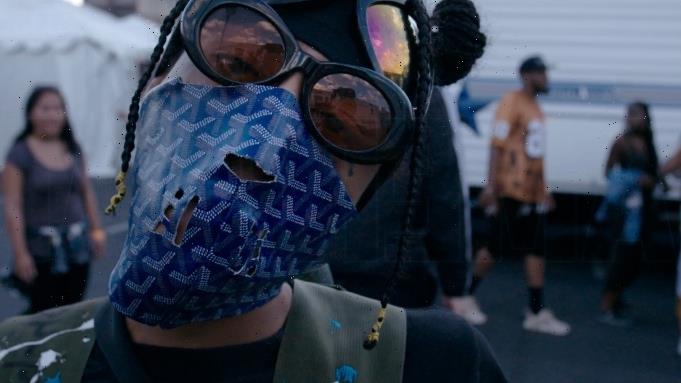
“What young people want from pop culture isn’t what old people want from pop culture,” New York Times pop music critic Jon Caramanica observes in Justin Staple’s documentary “American Rapstar.” The film charts the rise of a generation of lo-fi rappers buoyed by the advent of online streaming platform SoundCloud, founded in 2007. Smokepurpp, Lil Xan, and Bhad Bhabie are among the (living) talking heads, while deceased rappers XXXTentacion and Lil Pepper also get a spotlight as the feature dives into the substance-abuse epidemic plaguing the scene — from popping Xanax to the more serious, very often fatal fentanyl. Director Staple’s film introduces a lot of big ideas, mostly successfully, from indicting Big Pharma for encouraging pill addiction to the generational divide between the hip-hop artists who came of age in the early 1990s to today’s primarily internet-driven base. While a straightforward documentary in the classic sense, it’s polished, affecting, professionally edited, and bursting with big personalities.
The most outspoken is rapper and internet personality Bhad Bhabie (she has more than 16 million followers on Instagram, even if your mom’s never heard of her), who rails against conformity in some rousing sitdowns, and plainly observes, “This generation? All the kids are bad.” She also bashes the widespread trend of face tattoos which, according to her, all start to look the same. She’s also candid about her own experiences with addiction. Indeed, “American Rapstar” paints a picture of a drug-addled universe of kids strung out on their phones and looking for any way to numb their trauma. That didn’t turn out well for rappers XXXTentacion (one of Soundcloud’s earliest successes), who was murdered in 2018 after a lifetime of dealing with depression and family issues, and Lil Peep, the Swedish-American rapper who overdosed on his tour bus in 2017. “Where are we going to find happiness at?” Bhad Bhabie says at one point. There’s also Lexii Alijai, who OD’ed in 2020, and references to Mac Miller, almost amounting to a pile-up of very sad casualties of the industry.
“American Rapstar” takes dark turns in unspooling their stories (abetted by a fitfully ominous electronic score by Nathan Williams that sounds straight out of a horror thriller) as cautionary tales for the industry at large. While the film is hardly a hagiographic puff piece, it’s also careful to emphasize how influential these artists were and how iconoclastic in their expletive-filled messaging. (XXXTenacion’s songs dwelled heavily on themes of alienation and depression.)
“The internet has become such a fucking toxic place,” 26-year-old California rapper Lil Xan opines. But it also enabled artists like him (“I’m the new wave,” he says) to flourish. Curiously, for a documentary that takes on SoundCloud, there’s little specific context here about the platform. It started in 2007 as a way for artists to upload and promote their work in DIY fashion, wresting control of their content from corporations. SoundCloud becomes more of a timely backdrop against which to explore the broader cultural surfacings that happened among hip-hoppers and their fans from the mid-2000s through today.
Toward the end of the film, Caramanica offers an intriguing insight into the kind of complicated music the artists are putting out. Too often, their words are written off as the product of a generational malaise — an “oh you kids” kind of thing — when we should be listening closer. “You shouldn’t leave your viewers feeling good. They should be walking out of the theater scratching their heads a bit and trying to figure out how they’re implicated as well,” Caramanica says. The same could be said for Staple’s movie.
Grade: B
“American Rapstar” is now streaming on Hulu and digital platforms from Utopia.
Source: Read Full Article